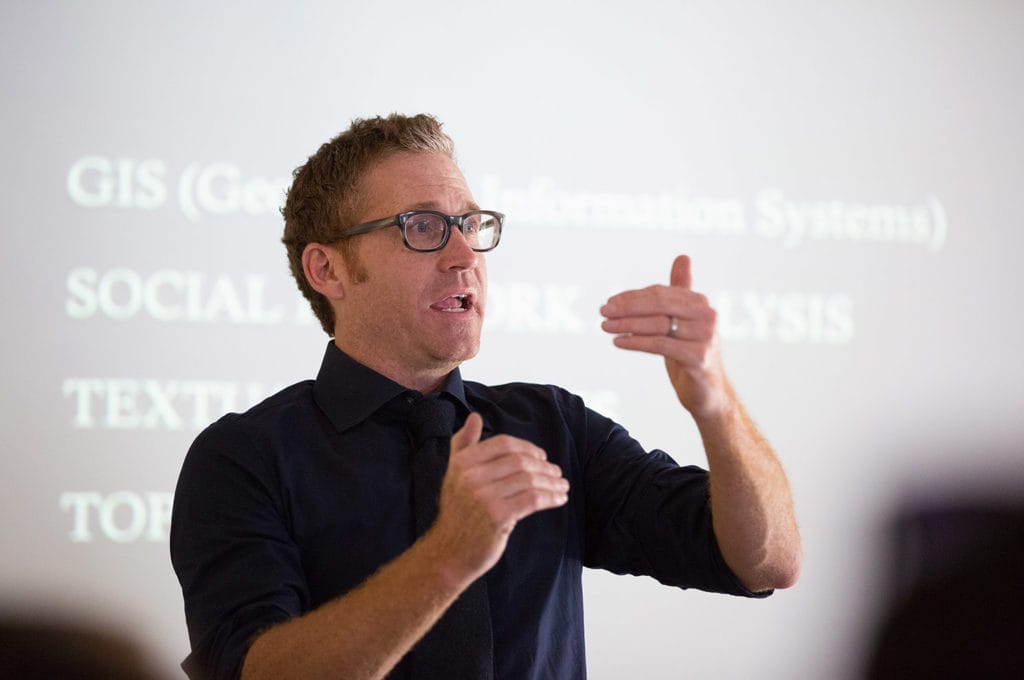NEH Awards Grant to Eric Bulson to Study ‘Ulysses’ Computationally

Literary theory and computational methods have not traditionally been linked, but Eric Bulson wants to change that. The CGU English professor is using quantitative methods to study James Joyce’s Ulysses, and the National Endowment for the Humanities (NEH) has just set aside a $50,000 fellowship to help him do so.
Bulson’s aim is to show that computation has a valuable role to play in the humanities. By not only reading the words, but also counting them, enumerating the forms of speech, determining the network of the first subscribers, measuring the time of composition, and studying other factors, Bulson believes that essential truths about the literary work, and the literary world, can be discerned.
“I read by numbers precisely to put distant reading at the service of ‘fine-toothed study’ and in doing so provide answers to the who (first read it?) what (is it made of?), where (was it read?), when (was it written?), and why (is it so long?) of one of literary history’s greatest works,” Bulson said in a fellowship proposal on his project.
Bulson’s was one of only 26 NEH awards given to projects in California. The NEH supported 253 projects this cycle (8% of the application pool), supplementing private and public funding to underwrite undertakings such as the conservation of fragile books from the personal library of author C.S. Lewis and archival research for a book on the Nazi plunder of musical instruments and manuscripts during World War II.
“The humanities offer us a path toward understanding ourselves, our neighbors, our nation,” said NEH Acting Chairman Jon Parrish Peede. “These new NEH grants exemplify the agency’s commitment to serving American communities through investing in education initiatives, safeguarding cultural treasures, and illuminating the history and values that define our shared heritage.”
Another of NEH’s stated goals is to support the use of cutting-edge tools and technologies in humanities research, which Bulson’s project clearly advances.
“Questions about the value of quantitative analysis are being raised everywhere in the humanities, and institutions across the country are desperately trying to determine what, if anything, humanists (both quantitatively inclined and not) can teach us,” Bulson said.
For Bulson and the NEH, one of the Ulysses project’s primary objects is to demonstrate the value of uniting literary analysis and quantitative methods, of counting in order to read closely.
“‘Ulysses by Numbers’ is, above all, an argument that it can happen if we think of numbers as a way to solve old equations and an opportunity to uncover the new ones we never noticed before,” Bulson said.